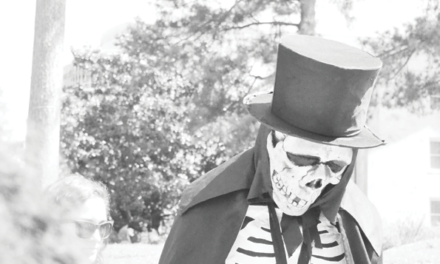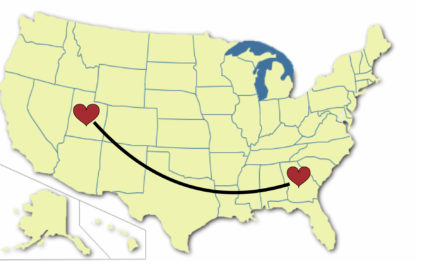
Reporter Lyndsey Layton published an interesting story in The Washington Post about four days ago: the U.S. government had just awarded a $3.1 million grant to schools in Newtown, Connecticut as part of pledge by the Obama administration to help the still damaged community recover from the events two years prior. Predictably, the story did not get much attention. The Washington Post article received zero comments on an issue that produced fiery Facebook fights two years ago. Meanwhile, a Huffington Post article (which was originally an article from the Associated Press) got one “are you FN kidding me??” Facebook comment followed by a confused response.
This seemingly depressing turn for the updates on Newtown reflects a norm for many modern social injustices. The shooting at the Sandy Hook Elementary School in Newtown is a shadow of the hot-button issue that it was two years ago. While the controversy did generate much support for the community, including the over $17 million spent by the U.S. government to help the schools recuperate, the American mindset has largely forgotten about the importance of gun control, and thus the social movement that could have meant comprehensive legislation died a silent death. This blip in consciousness draws a similar parallel to a more contemporary social issue: the events in Ferguson, Missouri.
A simple Google News search of “Ferguson” reveals that we’ve already begun to stop paying attention to the impact of the tragic incident. Sure, Attorney General Eric Holder is probing the police department, and a “Funny or Die” skit attempts to satirize the police department in the name of humor and critical commentary. However, there is no talk of the social movement going on there. What happened to the discussion of the protest? What about legislation at the state or federal level to address the ongoing problem of racial discrimination and police militarization? You could find the answer in the most popular Buzzfeed article (“46 Birth Photos That Are Worth Having a Baby For”).
Social movements need sustenance if they are to succeed. Both figures in power and grassroots activists must keep social issues in question in order for the movement to succeed. Yet, if the top cannot complement the bottom, then the movement fades away. If the people, legislators and the bully pulpit remain out of sync, then critical issues remain largely unresolved.There are many examples of truly successful social movements in contemporary America in which the media, the people and the government worked together to solve a real issue. In 1952, Reader’s Digest published a damning article against cigarettes called “Cancer by the Carton.” The article proved pervasive in its ability to wake up the American people to the dangers of smoking. Since then, brands like “Lucky Strike,” a household name in the 1950’s (e.g., “Mad Men”), largely receded. Cigarette sales tumbled as the American people and eventually Congress began to address the dangerous effects of smoking. To this day, this public health movement against smoking is considered one of the most integral and successful social movements for the betterment of the American people.
Nowadays, it seems like a smorgasbord of hot-button issues are pervading the U.S. and the world. CNN reporting on another tense moment between President of Russia Vladmir Putin and President Barack Obama. MSNBC talking about Governor of New Jersey Governor Chris Christie’s “Bridgegate” scandal. Fox News hoping that politician Mitt Romney decides to run for the presidency again. All of these stories are examples of content that makes Newtown and Ferguson so easy to forget. This exploding wave of digital paraphernalia means that the people are at least aware of what’s going on in places like Nigeria and Russia; however, it makes it difficult for the nation to reflect on what goes on at home, and therefore forget what it learned two weeks ago.
With new and growing threats from the Islamic State in Iraq and Syria (ISIS) and more basketball team owners making surprisingly racist comments, Ferguson can seem easy to forget. However, the electorate must hold on to this critical issue. They should never forget the tear gas used by common police. They should never forget the small-scale war that was waged in the waning weeks of summer. They should never forget what happened to Michael Brown. Both Newtown and Ferguson represent the eruption of tensions over critical issues still facing the U.S. today. These events seem isolated but are destined to repeat (and have already done so) all over the nation if Congress and the grassroots cannot work together to solve these two very different but very important issues.
I urge the people to not think the only thing that’s happening in front of them is what’s on the front of the newspaper. On one day, there may be another terrible beheading by ISIS. On another day, a celebrity may have passed away. But we must never allow the dreams of those supporting Michael Brown and the victims of the Newtown to go unheard. We must never forget the messages of these two tragedies and what they tell the world – and ourselves – about our country.
–By Somnath Das
The Emory Wheel was founded in 1919 and is currently the only independent, student-run newspaper of Emory University. The Wheel publishes weekly on Wednesdays during the academic year, except during University holidays and scheduled publication intermissions.
The Wheel is financially and editorially independent from the University. All of its content is generated by the Wheel’s more than 100 student staff members and contributing writers, and its printing costs are covered by profits from self-generated advertising sales.






